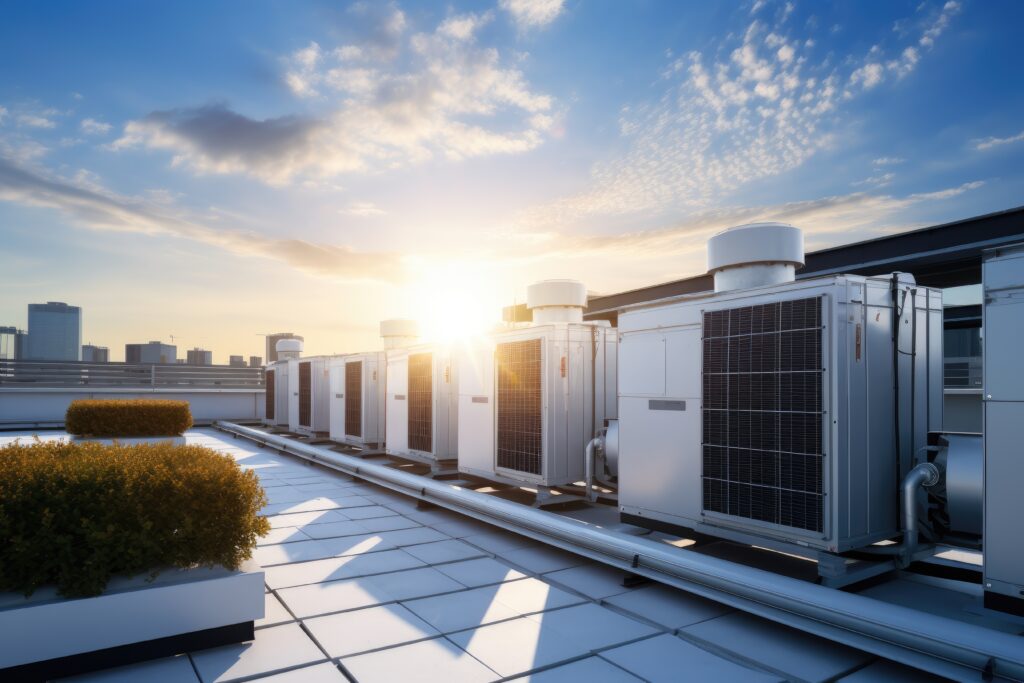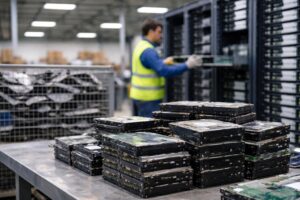A building’s HVAC system is truly its lifeline. It is working continuously to maintain environmental comfort indoors through heating and cooling. However, these crucial systems are also energy-extensive. Optimizing the HVAC system as a result becomes the need of the hour to to reduce costs and environmental impact. Moreover, did you know that this optimization can lead to over 50% of energy consumption? Shocking isn’t it?
For owners or occupants of the building, it directly correlates to improved air quality, utility bills, and enhanced comfort. Nevertheless, a strategic approach is needed for this optimization. In this article, we will dive into these approaches and amongst other things. It includes the science behind energy efficiency in these systems, etc. So let’s get started.
Energy efficiency in HVAC systems: Dive into the science
Understanding the scientific ratings is crucial when choosing the best HVAC systems and equipment. These are the ones that gauge how well the system is working. A few essential measures are frequently employed to evaluate the effectiveness of cooling and heating systems.
SEER and EER are two significant scientific metrics for cooling efficiency. SEER stands for seasonal energy efficiency ratio. It measures the amount of cooling output that is produced by the HVAC system in a British thermal unit. Now this is over the course of a normal cooling season. If the SEER rating is high, it shows the high energy efficiency of the equipment. The calculation of SEER ratings uses typical seasonal operating conditions.

Energy Efficiency Ratio is referred to as EER. It quantifies cooling production in BTUs over energy input in kilowatt-hours, similar to SEER. While EER assesses efficiency under stringent laboratory test settings, SEER utilizes seasonal averages. Similar to SEER, a higher EER rating indicates an HVAC system or component that is more efficient.
Heat pumps are graded for heating effectiveness using the HSPF (Heating Seasonal Performance Factor). This statistic calculates the overall heating output generated throughout the course of a season. This is expressed as a ratio of BTUs to the kilowatt-hours of power used by the heat pump overall. The heat pump is more energy efficient the higher the HSPF.
It is essential to comprehend these fundamental scientific efficiency ratings. It enables unbiased comparison of various HVAC systems. So, it is crucial to choose systems and components with better values for these metrics. It maximizes energy efficiency and savings.
Now the question that arises is, what are some strategies that can optimize the HVAC systems to improve energy efficiency? Let’s take a look.
Strategies to optimize HVAC systems to improve energy efficiency
In this section, we go through some suggestions to enhance the efficiency of your HVAC system. As a result, it will lower your energy usage as well:
Check your filters regularly
Checking and replacing your filters on a regular basis is one of the easiest methods to maximize the performance of your HVAC system. Filters stop particles from entering your system and degrading its performance. But with time, they could block up and lessen airflow and quality.
Your system may need to work harder and consume more energy as a result. This is to keep the optimum humidity and temperature levels. So once a month, at the very least, you should check your filters. Moreover, when they get clogged or broken, you should replace them.
Upgrade to equipment that is energy-efficient
Replacing obsolete HVAC components with modern, energy-saving versions is a potent efficiency tactic. Modern systems use cutting-edge technology to reduce energy waste and expenses.
Based on the requirement for heating and cooling, variable speed motors automatically change output. Improved insulation keeps the conditioned air inside the system while intelligent controls optimize system performance.
These qualities allow modern equipment to perform significantly better than outdated HVAC infrastructure. Performance improvements cause significant reductions in energy use over time. As a result, it quickly recouped the cost of the upgrade through utility savings. Furthermore, HVAC products with the ENERGY STAR designation sell better. These devices enable users to save up to 20% on energy.
High-insulated access doors
Investing in access doors that have high insulation value will help in reducing sound and air transfer. Moreover, reaching the building’s vital components, wires or cables will be easier. These doors are also ideal for hiding essential components or personal items from view.
You can choose aluminum or steel-made access doors. The majority of building experts utilize them because of their resilient materials and insulation. It is done to prevent outside air from entering the building and changing the temperature inside.
Make use of demand-controlled ventilation
Demand-controlled ventilation is a powerful approach toward energy efficiency. It can help the ventilation system to generate energy based on the occupants of the room. So if there are a few people in the room, the system will need less effort to supply clean air to them. Furthermore, it also prevents over-ventilation which contributes to energy management.
Transition to clean or renewable energy sources
Investing in renewable resources like wind turbines or onsite solar panels can lead to less dependence on grid electricity. It aids in reducing transmission and distribution losses which happens traditionally.
By reducing environmental effects, the switch to sustainable construction practices also aids in LEED certification of buildings. Efficiency is maximized while exhibiting environmental leadership using renewable energy.
Regular preventive maintenance for optimum performance
Irrespective of how new or upgraded your HVAC units are, get regular tech visits. The primary reason for this is the breakage of these units with time due to usage. Moreover, before giving in, they will show symptoms of their motors working irregularly.
Though you can get a visit at this time but its still ideal to be regular for optimum performance. As a result, it will help in dodging energy waste or temperate fluctuations leading to energy management.
How can you stay Informed on efficiency trends?
We now know of the positive benefits that optimizing HVAC systems towards energy management can provide. But how can you stay updated with the strategies and techniques to stay ahead of the competition? The answer is through forums. Moreover, the 2nd net zero life sciences forum happening in Berlin, Germany on Nov 16-17, 2023 is a perfect opportunity. It will provide pioneering solutions for next-level energy efficiency, carbon reduction, and true sustainability.
Peer organizations will discuss their achievements and key takeaways from their own sustainability journeys. The forum encourages the sharing of best practices to hasten advancement across the board. Additionally, panels will discuss decarbonizing anything from industrial facilities to whole portfolios and lab equipment. Modern case studies will also offer guidelines for sustainable construction, the integration of renewable energy sources, etc. As a result, attendees will gain inspiration, knowledge, and connections to turn climate commitments into action and ultimately profits.
So book a seat for the event now! Moreover, Visit future-bridge.eu and netzero-events.com or follow us on our social media to track other energy use and decarbonization events.




